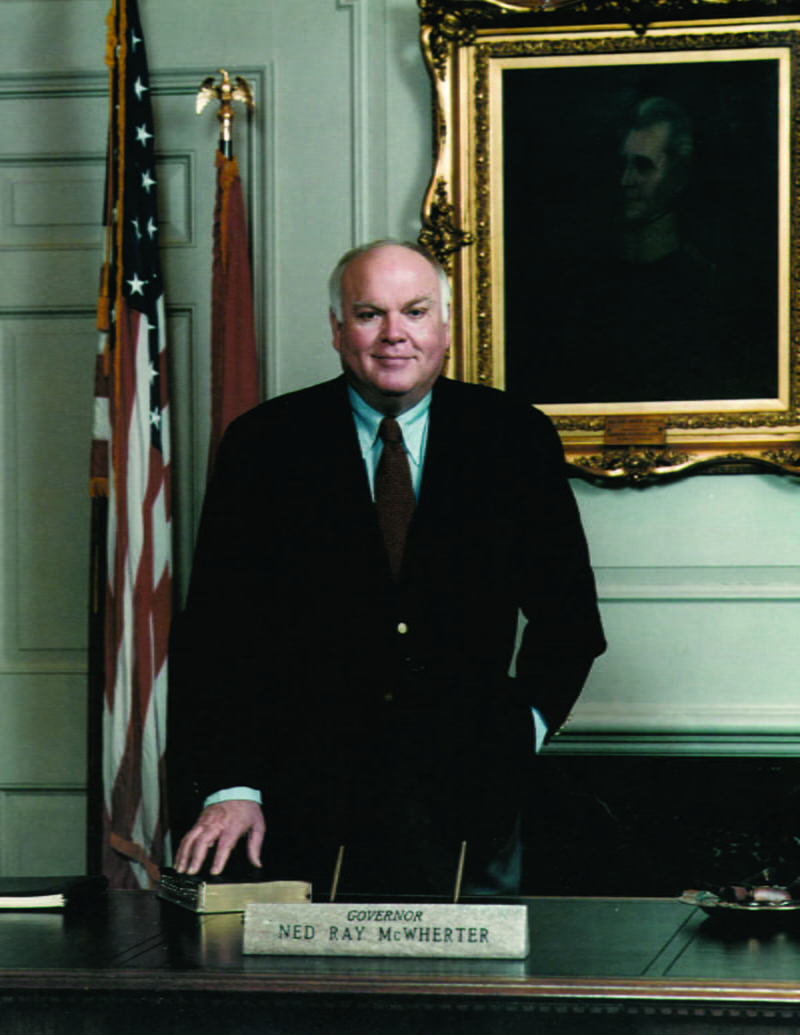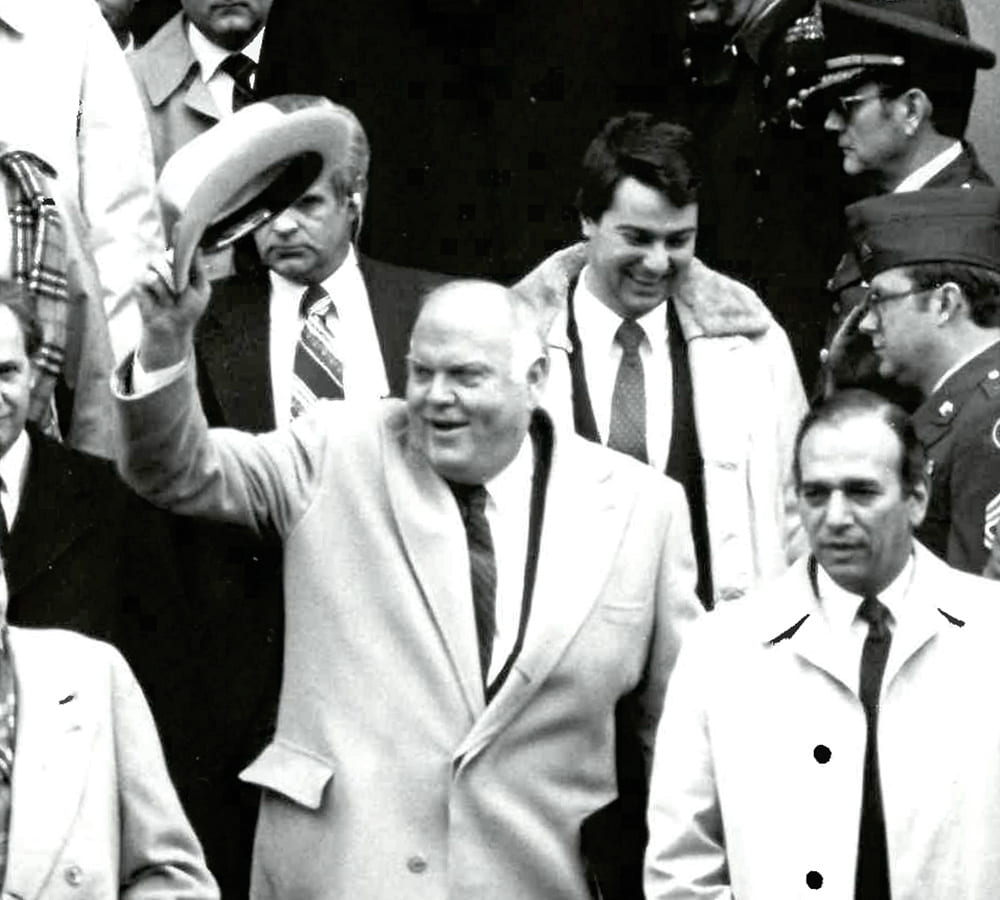Ned Ray McWherter

Ned McWherter spent his entire life living and working in and for Tennessee. After graduating from Dresden High School, his early years were devoted to establishing small businesses in the apparel and trucking industries. Elected to the House of Representatives in 1968, McWherter served as the 77th Speaker of the House of Representatives from 1973 to 1986. After nine terms in the legislature, he was elected the 46th Governor of Tennessee, serving from 1987 to 1995.
Throughout his career, McWherter was guided by the basic belief that quality health care should be available to Tennesseans regardless of where they live or where they work. As a first-term Speaker of the House, he was convinced that the shortage of doctors in rural East Tennessee justified a second statesupported medical school. In February 1974, he led the General Assembly in passing legislation to create a new medical school at East Tennessee State University in Johnson City. After the legislation was vetoed by the Governor, McWherter led the General Assembly in overriding the veto by a single vote, a milestone for increasing health care opportunities in Tennessee.
As Governor, McWherter convinced the legislature to replace Tennessee’s Medicaid program with TennCare, an innovative approach to health care that was funded by the state but managed by the private sector. The Medicaid system required doctors and hospitals to bill for individual procedures, resulting in widely different costs in various communities for the same service. In contrast, TennCare provided a fixed fee per patient per month. McWherter’s belief was that more efficient management could offer primary health care to the working uninsured, those with pre-existing conditions and those who did not qualify for Medicaid but could not afford private insurance. TennCare represented a creative proposal developed by health care experts, legislative, community and business leaders designed to slow the annual cost increases produced under Medicaid. McWherter used his considerable influence with the federal government to allow Tennessee to opt out of Medicaid-one of the nation’s first Medicaid waivers. The result was a spotlight on Tennessee and the beginning of a national conversation about how to provide affordable health care to the working uninsured.
In addition to his contributions to health care, McWherter’s other notable achievements include the Basic Education Program, designed to raise academic standards and provide increased and more fair funding to Tennessee’s public schools; the 95 County Jobs Plan that reduced unemployment in both urban and rural counties; and historic investments in roads and highways. In recognition of these accomplishments, in 1994 Governing Magazine named McWherter as the nation’s most outstanding governor. His legacy endures with a number of structures named in his honor including the Quillen College of Medicine’s Psychiatry Building at East Tennessee State University, the University of Memphis Library, the Middle Tennessee State University Learning Resource Center and the Weakley County Library.


